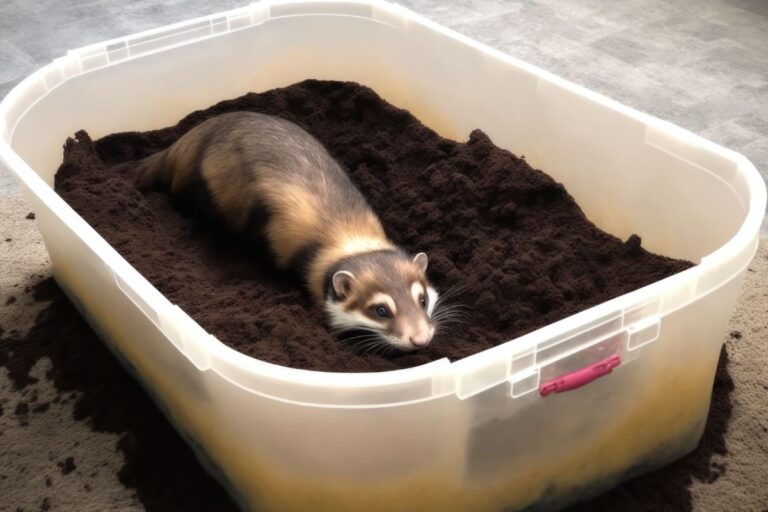Do Female Ferrets Smell?

In general, non-neutered pets have a characteristic musky scent, female ferrets included. However, this scent gets much more intense when they’re in heat. In addition, non-de-scented ferrets of both genders sometimes spray a pungent-smelling liquid, similar to that of a skunk. That typically happens during the mating season or when the ferret is feeling scared.
Do Female Ferrets Smell?
If you are thinking about getting a female ferret, this piece of text is for you. I’ll answer all the questions that first-time owners might have — Do female ferrets smell? Can I do something about it? Should I neuter my female ferret? And what on Earth is de-scenting?
How Do Female Ferrets Smell?
In general, non-neutered pets have a characteristic musky scent, female ferrets included. However, this scent gets more intense when they’re in heat. In addition, non-de-scented ferrets of both genders spray a pungent-smelling liquid, similar to that of a skunk.
To explain, all ferrets have anal scent glands, which they use to mark their territory. However, they also use them to ward off potential attackers. When the ferret is in danger, the glands start secreting the smelly liquid, spraying it at the attacker. That also happens when a non-neutered male ferret senses a female in heat.
Why Do Female Ferrets Smell?
Non-spayed female ferrets can remain in heat for more than six months. Throughout this period, they give off a musky scent to attract males. However, if you don’t plan on breeding your female ferret, I strongly recommend spaying it as soon as possible.
Because a female ferret produces high levels of estrogen when she’s in heat, it becomes susceptible to dangerous diseases if not bred. In fact, about 90% of ferrets don’t survive their first heat if they’re not bred or spayed.
Even though most pet stores spay and neuter ferrets before selling them, some people prefer to get them from private breeders, who typically sell them non-neutered. If that’s the case with you, I advise you not to waste time and neuter your new pet as soon as possible. After all, neutered ferrets have a much milder scent.
What You Can Do About It
I’ve heard a lot of people complain about the musky smell even after they’ve spayed or neutered their ferret. However, keep in mind that surgery only stops the production of more musk. Any musk that remained on their skin or in their bedding will still smell.
So, I recommend you change the ferret’s bedding and clean its cage after you spay or neuter it. In fact, you should do that on a weekly basis, not just then.
Also, you can occasionally give your ferret baths to remove its musk. However, keep in mind that frequently bathing a non-neutered ferret can have the opposite effect. If the ferret’s skin loses some of its natural oils, the musk glands will work harder to make up for them, enhancing the already strong odor.
As far as the anal gland smell is concerned, you can remove it permanently. As I previously mentioned, in addition to spaying or neutering, you can also descent your ferret. De-scenting refers to the surgical removal of the anal glands that secrete the odor.
Although it can certainly help with the smell, this type of surgery is somewhat risky and many complications can arise from it. Besides that, some people consider it unethical. Whatever the case may be with you, it’s best to consult with your vet. They can help you make an informed decision.
Final Thoughts
I hope this article taught you a thing or two about female ferrets and how to properly care for their health. Even though keeping them natural might seem like the most humane thing to do, that’s not always the best option. Not only do female ferrets smell, but they could also die if you don’t spay or neuter them in time. In addition, de-scenting them might remove the risk of nasty infections and stinky surprises.






